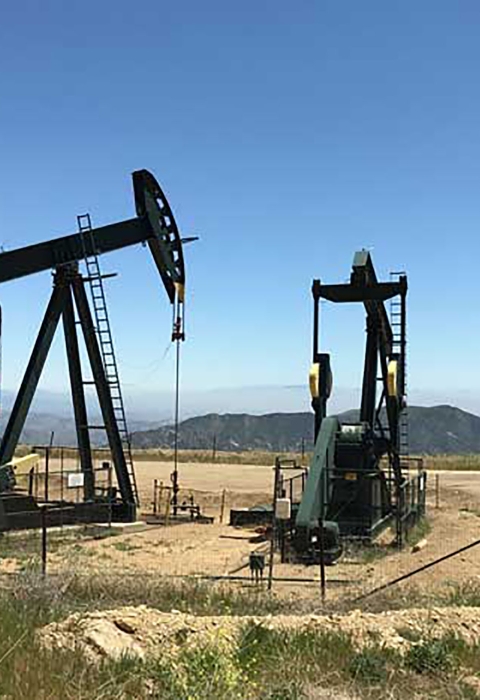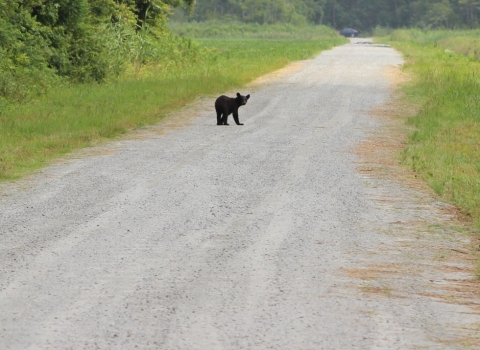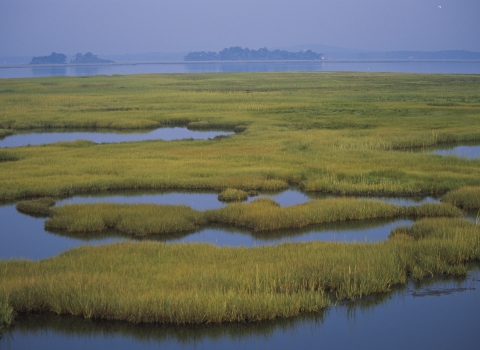During oil well drilling and operation, water and other waste fluids like drilling muds, concentrated salts, hydrocarbons, and toxic materials are produced. To separate the crude oil from produced water and other drilling fluids, a number of different earthen pits are constructed including reserve pits, skim pits, and flare pits. Once the drilling fluids have been separated, they are typically disposed of in evaporation ponds. These open-top pits, tanks, and containers pose a threat to migratory birds.
How do oil and gas pits impact migratory birds?
Oil waste pits and evaporation ponds can entrap birds that are attracted to a perceived source of water. Entrapped birds may not be able to get out of a pit due to sticky oil fluids, impaired feathers, or steep, synthetically lined pit walls. Birds that land on or fall into a pit become covered with oil and may ultimately die from drowning, starvation, cold or heat stress, or effects of ingested oil.
Why does this happen?
From the air, birds may have trouble distinguishing wetlands and other bodies of water from small pits, ponds, and reservoirs containing oil. They may be attracted to pits and open tanks used to store and separate oil from produced water due to the presence of insets. Birds may approach oil-covered pits and ponds to drink and fall into the pits or become entrapped if the banks of the pits are oiled.
What can I do?
Solutions to preventing bird mortality in oil pits and evaporation ponds are fairly simple and straightforward and are being implemented by many oil operators. Closed containment systems reduce the amount of drilling waste produced, require little to no maintenance, and can be moved from site to site, potentially reducing operator costs. These systems are the safest method to prevent bird exposure to oil and other hazardous chemicals and can eliminate soil contamination and remediation expense.
If a closed containment system is not used, pits and ponds less than 1 acre can be netted or fenced to prevent bird access. However, netting is only a viable practice if it is properly constructed and maintained.
All open-top containers should be covered to prevent entrapment, and any oil or waste fluid spill or leak should be cleaned up immediately.
Library Documents
- USFWS Mountain-Prairie Region Environmental Containments website
- Migratory Bird Mortality in Oilfield Wastewater Disposal Facilities
- USFWS Best Practices for Migratory Bird Care During Oil Spill Response



